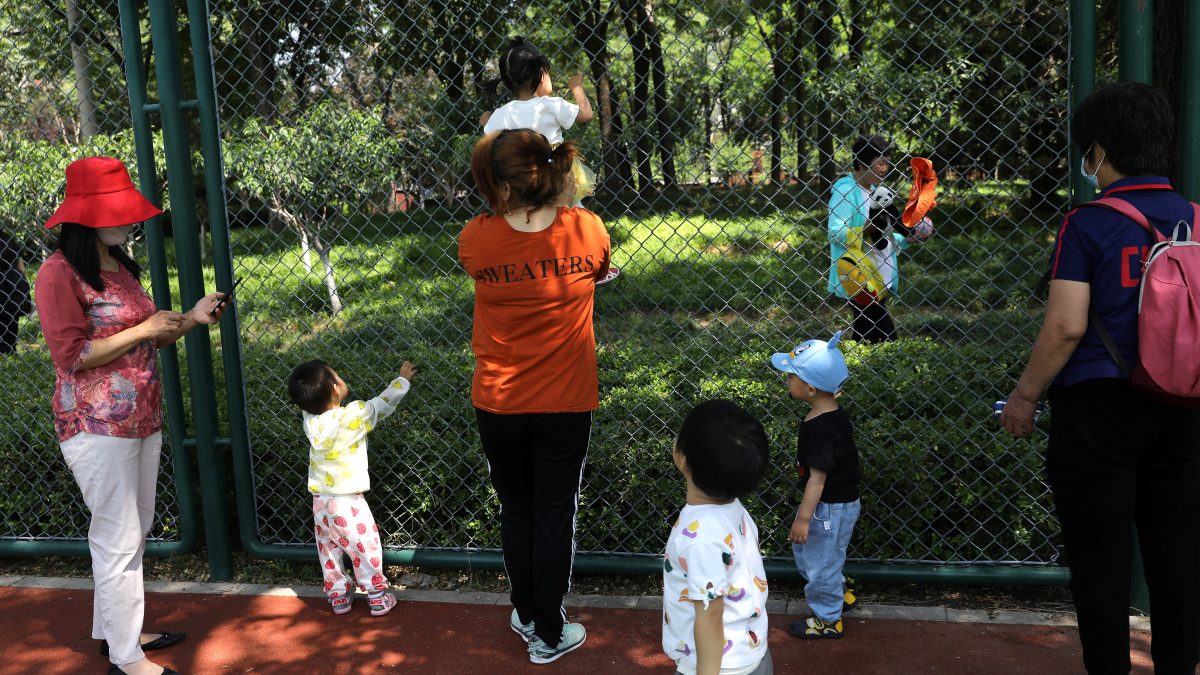Single motherhood in China is slowly gaining more acceptance as the countries administrative units quietly ease barriers faced by children born outside of marriage (and their mothers).
While official messaging from Beijing, including from President Xi Jinping, continues to promote traditional family values, some provincial and local authorities have started to lift restrictions that have long disadvantaged unwed mothers and their children.
These changes come as China grapples with a plummeting birth rate, rapid population aging and a shrinking workforce, Nikkei Asia reported.
In the past, children born out of wedlock were often denied access to public benefits unless their mothers paid hefty fines. But over the past few years, the penalties have been dropped in some regions like Sichuan, Guangdong and Shaanxi. They have allowed unmarried women to register their children’s births: a step is critical in accessing services like education and health care.
Sichuan officials said the policy shift was meant “not to encourage people to have children outside of marriage, but to protect the rights and interests of women who get pregnant before they are married and their access to health services.”
Though the central government has not officially endorsed the trend, its tolerance signals a growing awareness that reversing China’s demographic decline will require broader social reforms.
Some experts and officials have suggested that supporting single motherhood could boost births. A recent study led by Minzu University economics professor Shixiong Cao found that support for single motherhood among Chinese women increases with education. The researchers concluded that official support for unwed mothers “would potentially increase the birth rate sufficiently to maintain a demographically and ecologically sustainable level.”
While China does not publish national data on births outside marriage, academic estimates suggest they range from 5 per cent to 9 per cent— higher than South Korea’s 4.7 per cent in 2023.
Impact Shorts
More ShortsSome Chinese women are now choosing to raise children without partners, often turning to overseas fertility services due to strict restrictions at home. Domestic sperm banks and in vitro fertilization (IVF) clinics remain closed to unmarried women, a limitation that critics say contradicts the country’s push for more births.
Still, businesses catering to unwed mothers are emerging. A clinic in Guangdong, founded in 2018 by obstetrician Xiao Zhaoyu, helps women access fertility services in places like Guam and Malaysia. “Many have no fantasy about getting married but still want to become mothers,” Xiao said.
Social views slowly shifting
Public attitudes remain conservative, but some change is underway. Online influencers, like Shenzhen-based entrepreneur Ye Haiyang, are sharing their experiences raising children alone. Ye, who has four children conceived through IVF and sperm donors overseas, told her 500,000 followers, “As long as you don’t live up to other people’s expectations, you are free.”
Still, barriers remain. A 2021 survey by the Nippon Foundation found that 68.2 per cent of Chinese women saw marriage as a prerequisite to motherhood— the highest among eight Asian nations.
Doctors and scholars are pushing for change. At a political advisory meeting in March, Shanghai-based physician Chen Fangyuan proposed that single women be allowed to freeze their eggs through a pilot program. “For single women, freezing eggs is an effective strategy to raise their birth capability,” she said.
But opposition lingers. Some officials argue that relaxing restrictions would lead to social complications. Zhang Xinzong, director of the Guangdong Human Sperm Bank, recently said his organisation limits access to prevent “social difficulties” and reduce the risk of inbreeding.
Even so, some women like investment banker Li Yang are pursuing motherhood alone. Li, 34, is considering a sperm bank in Denmark after several unsatisfying relationships. “Carrying children is every woman’s right and shouldn’t be stripped away by anyone,” she said.


)

)
)
)
)
)
)
)
)



